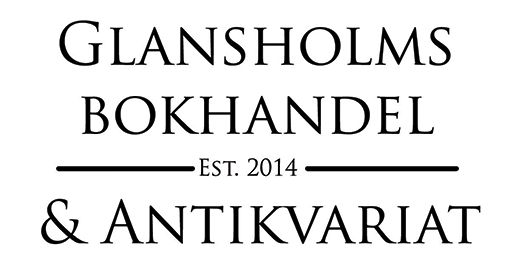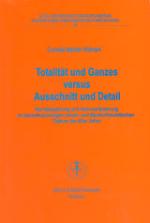
Våra experter hjälper dig eftersöka "Totalität und Ganzes versus Ausschnitt und Detail Normbewahrung und Normveränderung im deutschsprachigen roman- und literaturtheoretischen Diskurs der 60er Jahre" - utan extra kostnad
Glansholms Antikvariat har många tusentals böcker på lager - och över 10 miljoner böcker hos våra underleverantörer. Vi har en unik service till dig - efterlys boken och våra experter eftersöker den åt dig och återkommer inom några dagar.
Vad kommer boken att kosta? Normalpriserna för efterlysta böcker ligger mellan 120 kr och 380 kr beroende på utgåva, skick, tillgång, etc. Vi kan inte lämna ett pris förrän vi bedömt det enskilda exet. Har vi boken inne kan det ibland bli billigare och rariteter har ofta ett högre värde, att en bok är kostsam hindrar oss inte från att eftersöka och reservera den för våra kunder.
Är en efterlysning bindande? Nej, naturligtvis får du se bild, pris och skickbedömning innan du bestämmer dig. Men en efterlysning innebär ofta att vi låter ta in boken på lager och vi är därför naturligtvis tacksamma om du är seriöst intresserad och återkommer när vi kontaktar dig via epost.
Vänligen gör en efterlysning per bok! Varje bok behöver ett eget referensnummer för att vi ska kunna hantera efterlysningen.
Vi behandlar inte efterlysningar av ordinarie kurslitteratur.
 Efterlys "Totalität und Ganzes versus Ausschnitt und Detail Normbewahrung und Normveränderung im deutschsprachigen roman- und literaturtheoretischen Diskurs der 60er Jahre"
Efterlys "Totalität und Ganzes versus Ausschnitt und Detail Normbewahrung und Normveränderung im deutschsprachigen roman- und literaturtheoretischen Diskurs der 60er Jahre"Totalität und Ganzes versus Ausschnitt und Detail Normbewahrung und Normveränderung im deutschsprachigen roman- und literaturtheoretischen Diskurs der 60er Jahre
Av Cornelia Metzler Widmark
Utgåvor
This study is a thematic-descriptive investigation of the reproduction and transformation of norms in the theoretical discourse on the novel during the 1960s. Primary literature consists of articles and essays published in West German literary and cultural journals 1959-1967.
The term 'discourse' is applied partly in accordance with Busse/Hermanns/Teubert (1994), the term 'theory of the novel' chiefly in accordance with Lämmert (ed. 1984). 'Ideology' is not used in the sense of 'false ideology' hut rather as an umbrella term for various types of value-related statements. From this, the theory-of-the-novel discourse is perceived as an aesthetic-ideological discourse, containing statements directed at the contemporary novel which have clear programmatic function and significant thematic width.
The objective of the investigation is to show that specific comprehensive thematic fields - Werteverlust (breakdown and loss of values), Subjektproblematik (problematisation of the concept of the subject), Sprachproblematik (language related problems) and Realitätszerfall (reality loss, breakdown of the reality concept) - bear discursive significance as regards the discussion of literary norms during the 1960s, and that this discussion realises itself as two aesthetic-ideological discourses competing for interpretative precedence. The major issues are: Which reiterated patterns of argumentation, i.e. norm-related categories, concepts and rhetorical patterns, are used in the discourses for diagnoses and programmatic imperatives? How are the comprehensive thematic fields accentuated? What is treated, postulated or set aside as 'truth'? How - based on the above - is the novel formulated as a 'problem' ('crisis of the novel')?
Bok: 156638
 Anmäl textfel
Anmäl textfel







